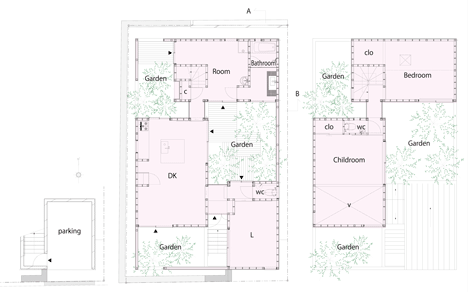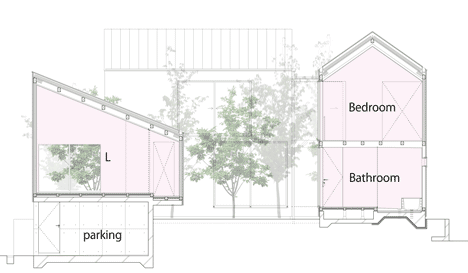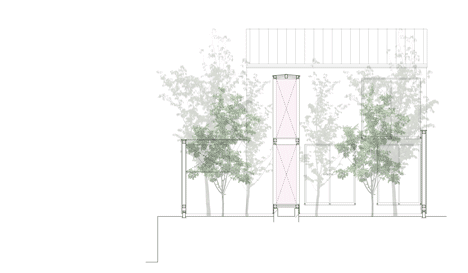House N by Tomohiro Hata is based on a traditional Japanese vernacular
Japanese architect Tomohiro Hata planned this suburban house in Hyogo Prefecture as a cluster of three buildings around a courtyard, based on the traditional city residences of farmers, artisans and merchants.
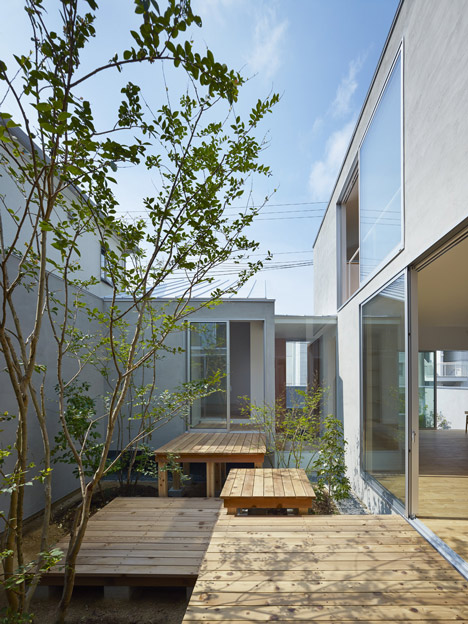
Named House N, the family residence was designed by Tomohiro Hata to reference Japanese minka, a typical vernacular home from the seventeenth and eighteenth centuries that is often made up of several structures. These can include a main building, a separate cottage, a warehouse and a chicken coop.
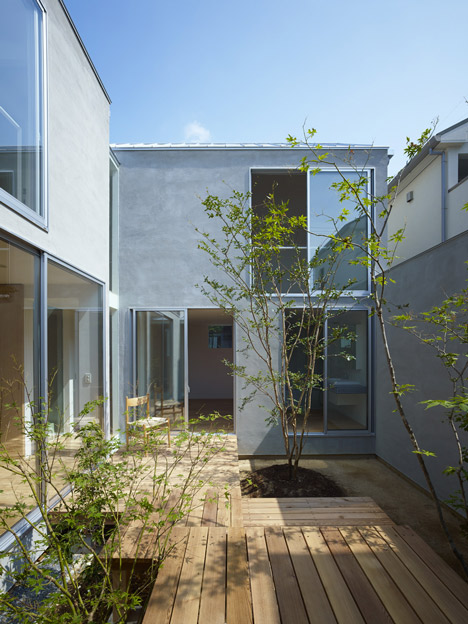
"Following the form of traditional Japanese private houses, we considered an arrangement that can let all rooms open to the garden," said Hata.
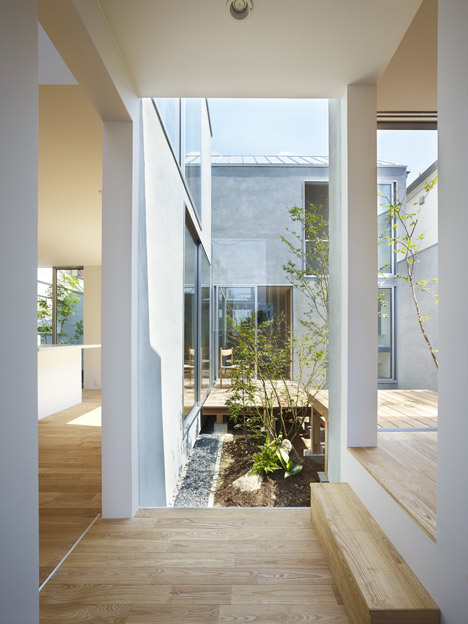
The three buildings fold around the generously sized courtyard, but also lead out to two smaller gardens at the corners of the site, which are enclosed behind a high perimeter wall.
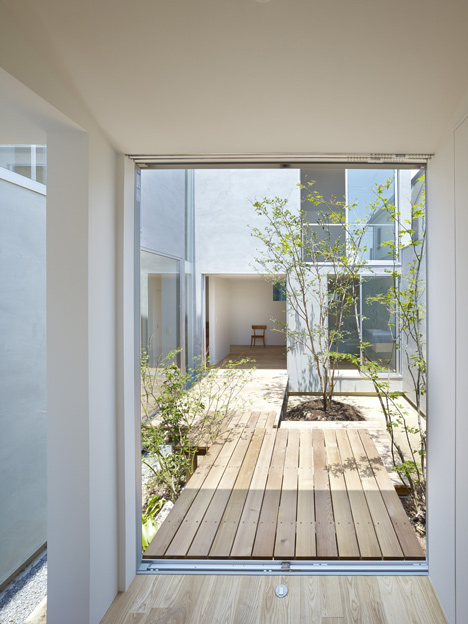
"The building and the wall are integrated, so that the arrangement [of the plan] can be designed as freely as possible," added Hata.
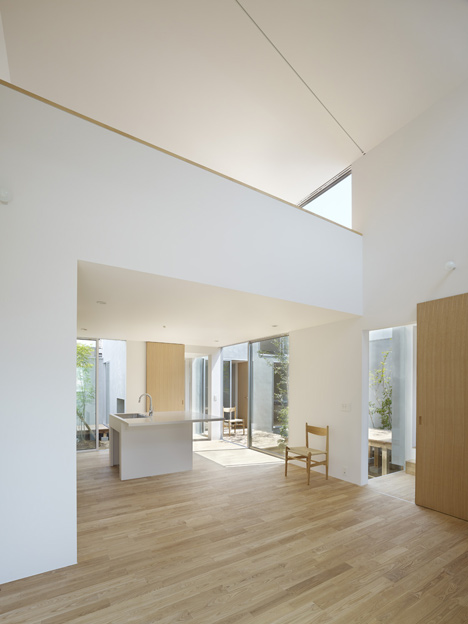
All three buildings have separate entrances, but are connected to one another by glazed corridors that allow views between the three outdoor spaces.
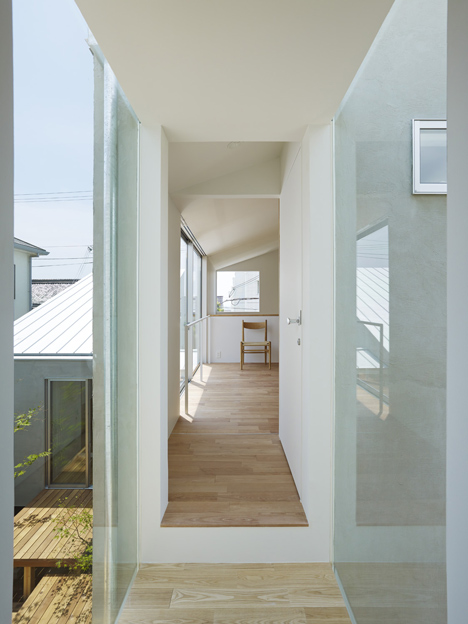
The largest of the three buildings is a two-storey structure with a dining room and kitchen on the lower level and a childrens' room above.
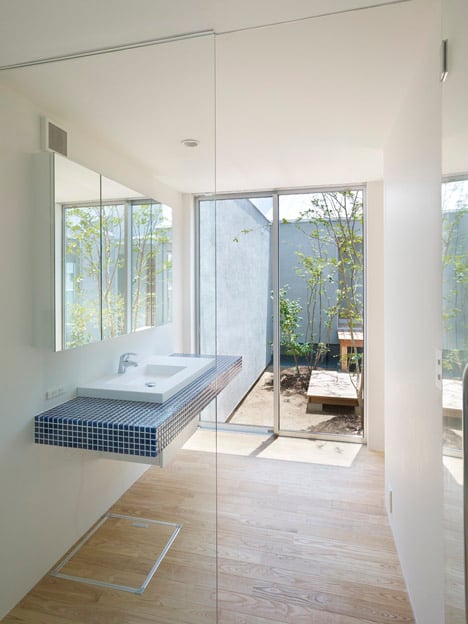
Another two-storey block contains a multi-purpose room and the master bedroom, while the smallest building houses the family living room.
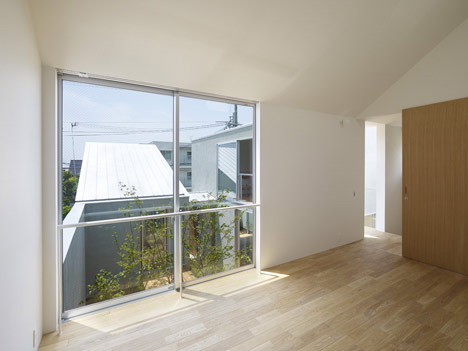
Large windows direct views towards the courtyard, which is made up of wooden platforms at different heights to one another.
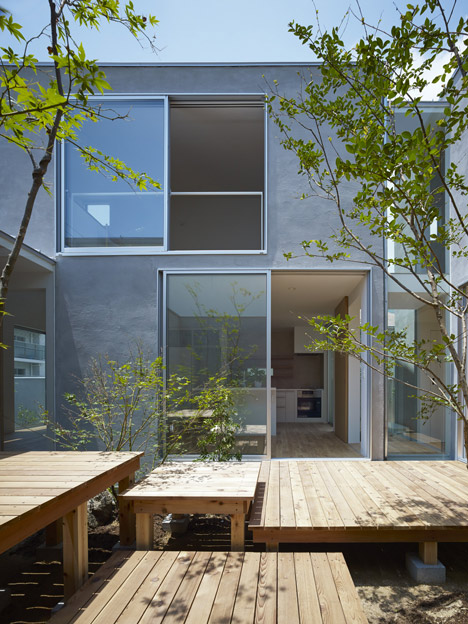
The site slopes down at the rear, so the architect has slotted a single-car garage underneath the house.
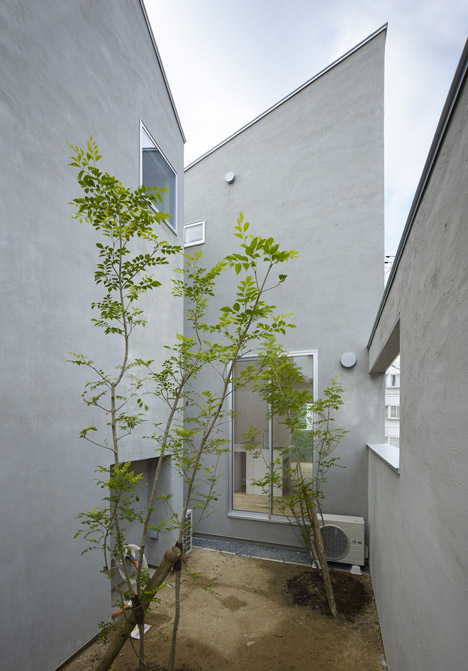
Photography is by Toshiyuki Yano.
Here's a project description from Tomohiro Hata:
House N
Housing that takes advantage of the richness of a private house in the city.
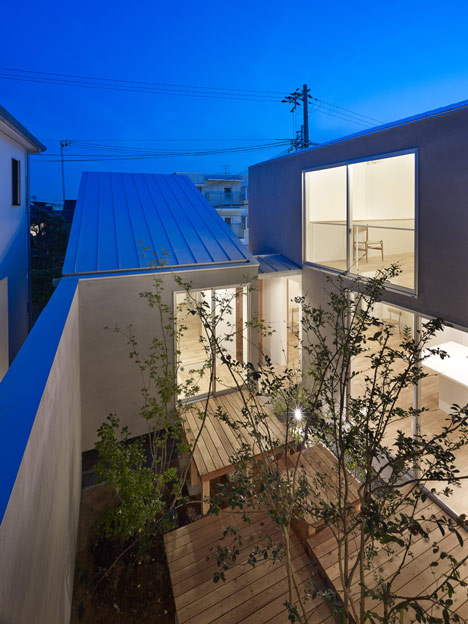
It is found that an architectural form as a main building, a separated cottage, and a warehouse: kura are built within a site surrounded softly by a wall at the suburbs of Sasayama city and Tamba city in Hyogo prefecture where many traditional houses remain.
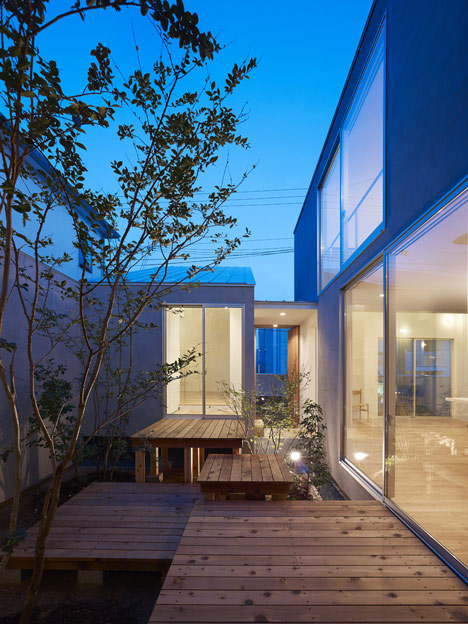
Surrounding the area softly with walls, each of the rooms faces to the inner courtyard produced by the external space between each building. It is a very simple and rich living space as you can keep it open with feeling at ease.
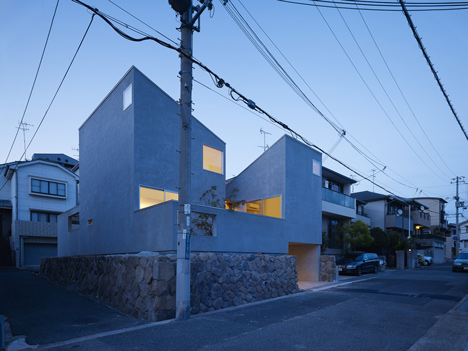
By focusing on the characteristics of the house that site area is limited at suburbs in the complicated city described above, we aimed to create the environment protected as a residence with opening to the outside of the house.
